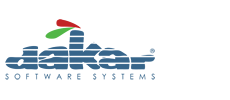
23 Sep Performance Management
The key to achieving organisational goals
Modern-day HR management has evolved to an extent whereby planning, recruitment, onboarding and management of people are increasingly aligned with the implementation of key organisational goals and objectives. The role of HR in the modern organisation is therefore focused on improving employee performance, developing high-performance leaders and motivating employees. This is achieved by building a conducive work environment and by channelling staff roles and individual attributes towards providing strategic input into organisational planning and decision-making processes. In short, the role of HR has evolved from simply being an appraiser to that of an enabler and facilitator.
From a performance management perspective, HR’s new enabling role is manifested by activities such as joint goal-setting, continuous progress review and constant communication, feedback and coaching, thus resulting in the level of performance necessary to achieve the organisation’s goals.
Home truths about traditional performance appraisal techniques
It has traditionally been held that performance appraisal is an ideal tool for providing feedback/criticism and for recording and measuring individual goals, targets, development needs and other ‘two-way feedback’. Additionally, performance appraisal has frequently constituted the ideal documentation mechanism to justify salary increments and bonuses. Yet despite such processes, it often turns out that performance levels can still remain disappointingly low.
Meyer, Kay and French, in their ground-breaking research entitled, “Split Roles in Performance Appraisal” bring to light several eye-opening facts relating to the appraiser/appraisee dynamic and the performance appraisal mechanism per se, namely:
Criticism tends to have a negative effect on achievement of goals.
Praise has little effect one way or another.
Performance improves most when specific goals are established.
Defensiveness resulting from critical appraisal produces inferior performance.
Coaching should be a day-to-day, not a once-a-year, activity.
Mutual goal-setting, not criticism, improves performance.
Interviews designed primarily to improve an individual’s performance should not at the same time weigh salary or promotion considerations in the balance.
Real participation by the employee in the organisation’s goal setting processes helps provide mutually favourable results.
Even more strikingly the same research points out that it is actually foolish to have a manager serving in the self-conflicting role as a counsellor (helping an employee to improve their performance) when, at the same time that same manager is presiding as a judge over the employee’s salary or promotion action case.
The role of technology in managing employee performance
The right Performance Appraisal software solution can go a long way into helping you implement an effective performance management mechanism in your organisation. A key aspect to implementing the right solution is for the software to enable you to conduct multiple appraisals for different purposes and to give you the flexibility you need to allow your performance management tools to evolve in sync with your organisational strategy and to fulfil the true vocation of performance management in your organisation as a facilitator and enabler.
David Catania is Chief Operations Officer at Dakar Software Systems, a specialist provider of integrated corporate HR solutions.
read more





